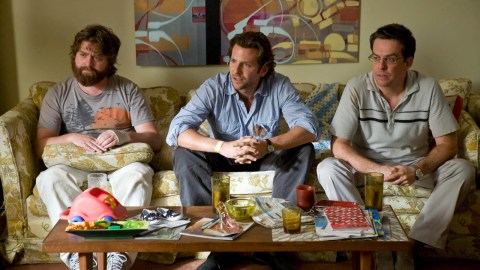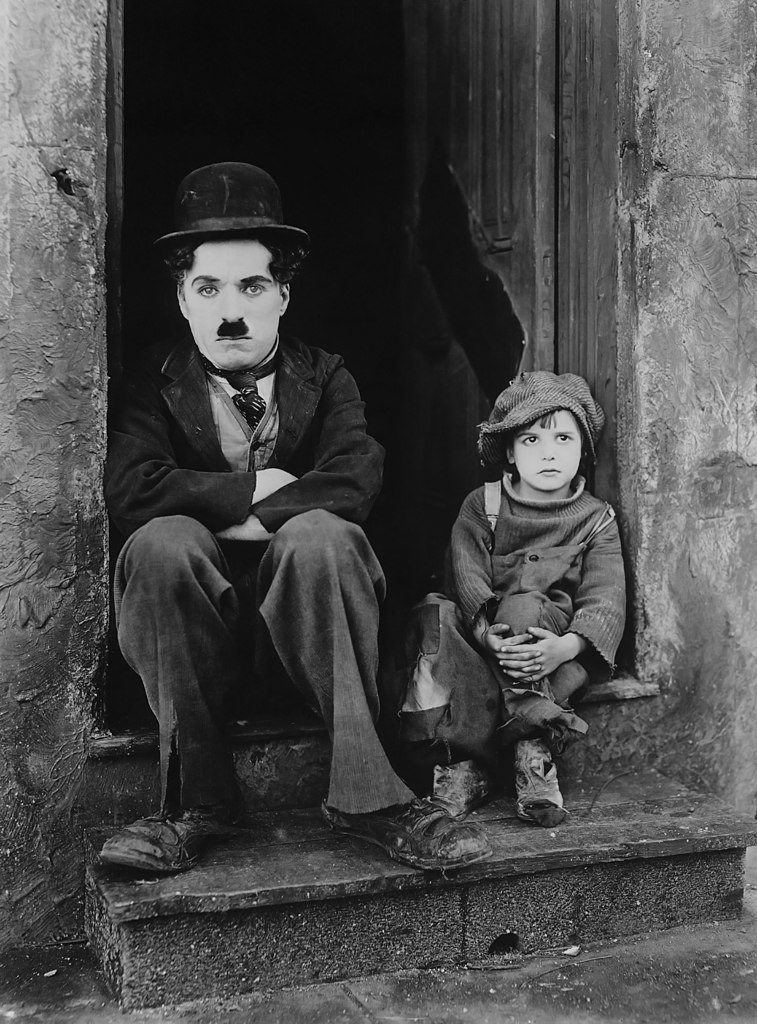Comedy movies rarely make it to theaters today. Here’s why.

- It’s been a while since there has been a hit comedy like Home Alone or The Hangover.
- This might be because film studios have their eyes set on foreign markets, which prefer universal dramas over culturally specific comedies.
- Another explanation is that comedy has been incorporated into action blockbusters, like those made by Marvel. For studio executives, these movies (and their familiar characters) are typically safer investments.
If you are an avid theater-goer with an interest in Hollywood movies, you might have noticed that the number of comedies on the big screen seems to have declined sharply over the last two decades.
Whereas people used to line up to see films like Home Alone, Bruce Almighty, or The Hangover, we haven’t had hits like those in a while. The handful of comedies that do become hits — such as Murder Mystery — do so exclusively on streaming platforms. Famous directors who specialize in comedy, such as Judd Apatow, are becoming a rarity. After his career-defining franchise had burned out, The Hangover director Todd Phillips made the drama film Joker. Come to think of it, would a straightforward, laughter-for-laughter’s-sake comedy, like Airplane, Shawn of the Dead, or The 40-Year-Old Virgin, even get greenlit in today’s studio system?
How did the movie industry get to this point? Some say it’s all because of the pandemic, arguing that studios are focusing on big, action-driven blockbusters — with familiar, tried-and-tested characters — to get audiences back into the theaters in order to make up for the income they lost during lockdown. Still, the pandemic can’t fully explain the pattern.
Another likely factor is the fact that what society considers funny and acceptable is not the same at it was 25 years ago. Stand-up comedians have regularly discussed how issues such as gender norms and political correctness have completely changed their field. Comedians like Louis C.K. have been ousted from the industry completely. Comedy films are now being judged by the same standards. The way the cult film Heathers represented school shootings was once considered entertaining, while today it’s seen as inappropriate. Similarly, American Pie is now sexist where it had once been received as merely promiscuous.

It’s not that modern-day comedy writers are running out of options for new material – only those under fire have attested as much. Rather, it’s that they are trying to deliver comedic material in an increasingly severe and earnest manner. In an article titled “Comedy’s existential crisis,” Vox journalist Aja Romano asks when entertaining became confused with informing, educating, talking down. From Bo Burnham to Ricky Gervais, contemporary comedians do not tell jokes so much as they tell us how they feel others should think and behave.
The business of comedy films
Perhaps the biggest reason that comedy films are disappearing is because they do not perform well overseas. Far from it, actually. Will Farrell’s 2006 movie Talladega Nights, about NASCAR, grossed $148 million in the United States, but only $14 million abroad, while the 2015 film Trainwreck made $110 million in the US yet $30 million abroad. The list of examples goes on and on. Dramas work the opposite; they often raise more money internationally than they do at home, meaning that even movies that flop at home can still become financial successes following their release in other parts of the world.
Drama is universal. The emotions dramatic stories can provoke — fear, anger, sorrow — transcend time and space. Humor, on the other hand, often differs drastically from one culture to another. Growing up in the Netherlands, this reporter has seen many a Hollywood comedy film that failed to properly resonate with Dutch audiences.
Some examples include Garfield, Yogi Bear, Alvin and the Chipmunks, and other animated films based on characters that are familiar to American children but unknown across the Atlantic. Live-action, adult-oriented comedies like Spring Break and Book Smart also belong in this list, not because they feature unfamiliar characters but because they revolve around unrelatable concepts. In the case of Spring Break, that concept is the spring break: a type of holiday that doesn’t exist in the Netherlands. In case of Book Smart, it’s the American high school, which is simply too different from its Dutch counterpart for any of the film’s jokes to translate. Talladega Nights probably did not do well abroad because NASCAR, like lacrosse, is an American sport; a film based on Formula 1 would have made more money overseas.
The line separating cross-cultural comedies from culturally specific ones isn’t always obvious. Both Rowan Atkinson and Steve Coogan are British character actors known for roles they have portrayed and perfected over the course of decades: Mr. Bean and Alan Partridge. Mr. Bean is an international sensation because Atkinson relies more on action than he does on words. Although Alan Partridge, a tone-deaf reporter, is also known for his physical comedy, he was created as a commentary on the British news industry. Thus, while Mr. Bean’s antics crack up British people as much as non-British ones, Alan Partridge is at his funniest when you have a working knowledge of either English culture, broadcasting, or, better yet, broadcasting in England.
In an article written for Hollywood Insider, Ben Ross argues that Hollywood comedies haven’t disappeared so much as they have taken on new forms. “Now,” he writes, “we’re seeing big-name franchises injecting more humor or being more in-tune with making their audience laugh.” He brings up the Marvel Cinematic Universe, noting that movies such as Thor: Ragnarok can be classified not just as action movies but superhero movies as well. Indeed, whereas early the Marvel films are serious and stoic, contemporary ones are defined by their levity, the pin inching closer to comedy than tragedy.
Ross concludes that “comedy movies are becoming less of their own individual genre and are more of a blending of others.” But while old-school comedies are a lot scarcer than they used to be, they have not disappeared completely. “That’s why it’s important to support those riskier non-franchise films, especially comedies, and give them a try on streaming or in theaters. After all, who knows what you’re gonna get?”




